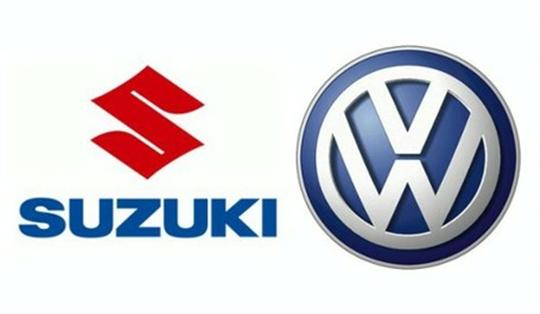
| Monday, September 19, 2011 | Archives | Advertise | Online Buyer's Guide | FLEETSolutions |
Suzuki Seeks ‘Divorce’ From Volkswagen As Twenty-Month Alliance Crumbles
 Suzuki Motor Corp. will seek to dissolve its twenty-month-old alliance with Volkswagen AG after the German carmaker’s 222.5 billion yen ($2.9 billion) investment failed to yield a single project. Suzuki Motor Corp. will seek to dissolve its twenty-month-old alliance with Volkswagen AG after the German carmaker’s 222.5 billion yen ($2.9 billion) investment failed to yield a single project.The Japanese automaker, which owns 1.49 percent of Volkswagen, plans to sell its holdings if Volkswagen agrees to end the tie-up, the company said in a statement to the Tokyo Stock Exchange. The Wolfsburg, Germany-based carmaker owns 19.9 percent of Suzuki. Suzuki will seek to end the pact with Volkswagen, even if the German automaker wants to maintain it, Chairman Osamu Suzuki said on September 12 in Tokyo. Volkswagen today said the company has no plans to dissolve its alliance with the Japanese carmaker. "The relationship is like a marriage and a divorce," said Chairman Suzuki. "We should just have a simple break up with a smile and say we weren’t meant for each other." The two carmakers stopped talking after Volkswagen described its partner as an "associate" in its annual report. Volkswagen has no intention of selling or reducing its stake in Suzuki, spokesman Michael Brendel said. Suzuki has broken the partnership agreement between the two carmakers by deciding to buy engines from Italian automaker Fiat SpA, he said. "We’ve known that Suzuki is a notoriously independent company with a chairman who is not going to bend over backwards to cooperate," said Ashvin Chotai, a London-based managing director at Intelligence Automotive Asia Ltd. "Volkswagen is better off focusing on a non-Suzuki-based strategy for India and Indonesia." Suzuki decided to seek an end to its capital alliance with Volkswagen at an unscheduled board meeting, according to the statement. Suzuki wants to buy the stake Volkswagen owns and has enough cash to do so, Chairman Suzuki said. "You can lead a horse to water but you can’t make it drink," said Chairman Suzuki. "We need to mutually discuss and come to a conclusion." Suzuki and Volkswagen’s partnership would not be the first German-Japanese automakers’ alliance to fail. Daimler AG bought a thirty-seven percent stake in Mitsubishi Motors Corp. in 2000 and 2001. The holding was unwound in 2005 after two years of sales declines at the Japanese carmaker. Revenue plunged after Mitsubishi Motors admitted to hiding defects, pushing it to a record 215.4 billion yen loss in the year ended March 2004. In contrast, France’s Renault SA (RNO) and Japan’s Nissan Motor Co. formed an alliance in 1999 that has lasted more than a decade. Daimler joined the alliance in April 2010 by giving a 3.1 percent stake to both carmakers. Mitsubishi Motors and PSA Peugeot Citroen also have a successful partnership, said Masatoshi Nishimoto, a Tokyo-based IHS auto analyst. |
 |
NAFA Fleet Management Association 125 Village Blvd., Suite 200 Princeton, NJ 08540 Telephone: 609.720.0882 Fax: 609.452.8004 |






